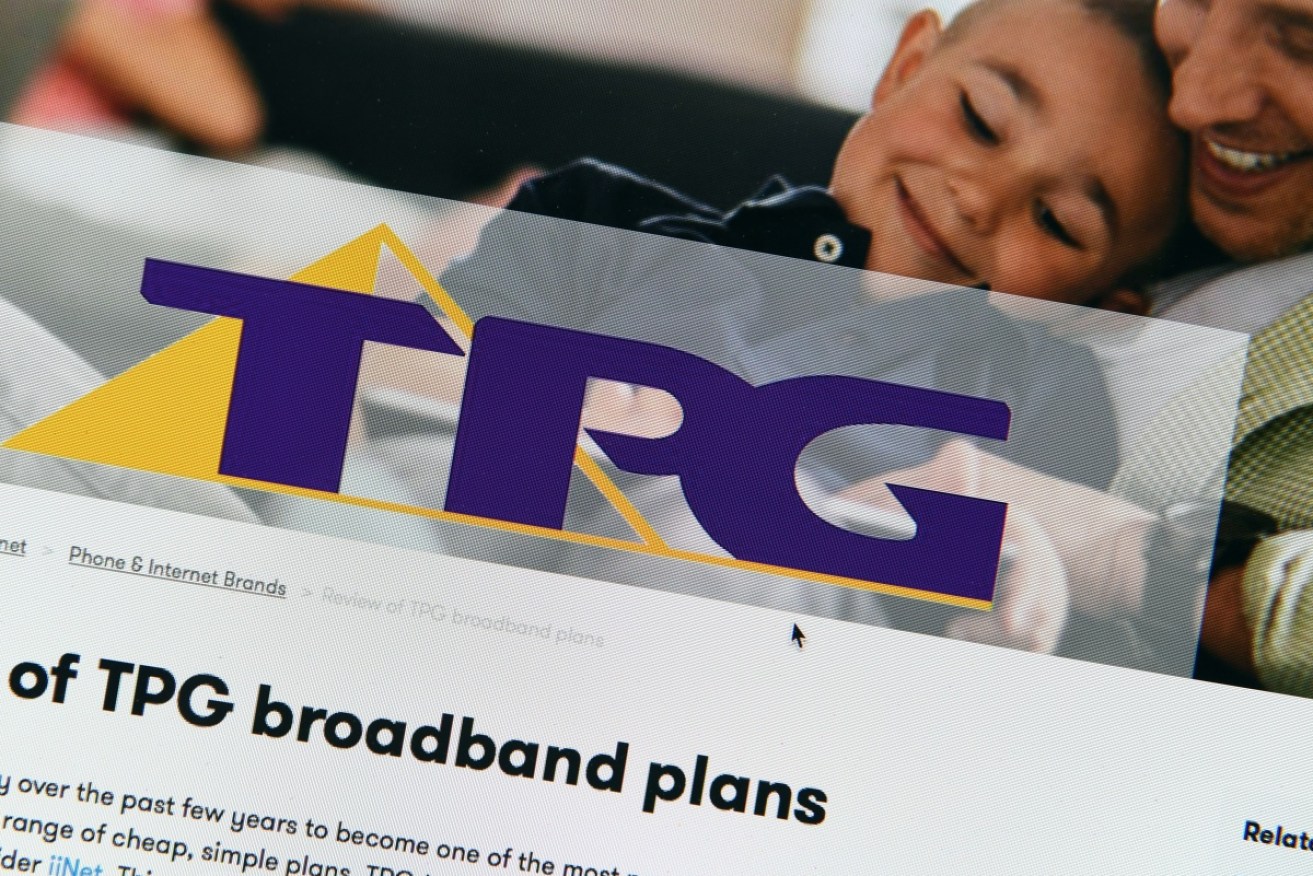TPG’s NBN speeds faster than Telstra, Optus during peak times: study


TPG is delivering faster NBN speeds than Telstra, Optus and iiNet. Photo: AAP
A consumer watchdog investigation has revealed that internet service provider TPG is outperforming the NBN speeds of Telstra, Optus and iiNet at peak times.
The Australian Competition and Consumer Commission (ACCC) report found that three of the four major providers deliver internet speeds between 88 and 90.7 per cent of the plan’s maximum speed.
TPG’s offering was the fastest, giving customers 90.7 per cent of their maximum download speed during the busy evening period – 7pm to 11pm.
iiNet (owned by TPG group) and Telstra followed close behind at 88.6 per cent and 88.1 per cent respectively, while Optus lagged at 80.7 per cent.
However, 5 per cent of the services tested were achieving less than 50 per cent of their maximum plan speeds.
The ACCC singled out the fibre-to-the-node (FTTN) technology as being primarily to blame for lowering the average speed performance overall, where the connections could not support the maximum speed promised by the plan.
Telecommunications analyst Paul Budde said TPG’s outperformance of other telcos could be explained by one of two things.
“Either Telstra and Optus still haven’t bought enough capacity,” he said, “or certain telcos have optimised their service in terms of infrastructure and software to deliver a better quality service.”
The report, released this week, contained the first results from the ACCC’s Measuring Broadband Australia program and involved the testing of 400 NBN and ADSL services supplied by over 10 internet service providers, reflecting 61,000 individual download speed tests.

NBN speeds have improved substantially in just a few months since changes to NBN Co’s wholesale pricing model. Photo: Getty
The average ADSL speed is 8 Mbps, compared with an average of 22 to 23 Mbps for 25 Mbps plans on the NBN.
ACCC chairman Rod Sims said the test results were better than expected.
“The majority of internet service providers are now delivering very close to their maximum plan speeds,” he said in a statement.
“The results for some types of services are still lower than we would like, but the overall results go against the current wisdom that the majority of consumers and businesses are having issues with NBN speeds.
NBN Co introduced a temporary discount plan in December, selling 50 Mbps for the same access price as the 25 Mbps service, which saw Australians immediately jump at the more cost-effective opportunity for faster speeds.
The ACCC has also pressured telcos over the past four months to refund customers who have paid for unachievable speeds.
“It is highly likely that just a few months ago these results would not have been anywhere near as good,” Mr Sims said.
TPG chief operating officer Craig Levy said it did not surprise him that Telstra and Optus were delivering slower NBN speeds.
A Telstra spokesman disputed the statistical significance of the ACCC’s report.
“This initial report is based on a limited set of data which means that minor variations may not be statistically significant,” he said.
“Otherwise the results for Telstra are broadly consistent with our own testing.”
An Optus spokeswoman said it would analyse the ACCC’s initial results and “apply any learnings to [its] service”.
An NBN Co spokeswoman said it took the results as confirmation its new wholesale pricing promotion is having a positive impact on telcos, with the benefits flowing on to consumers.
“[It] has relieved bandwidth congestion on the network from an average of around four hours to 12 minutes per week,” she said.
While its discount promotion has been extended until the end of October, NBN Co remained tight-lipped about its new wholesale pricing bundles scheduled to launch by the middle of 2018.










